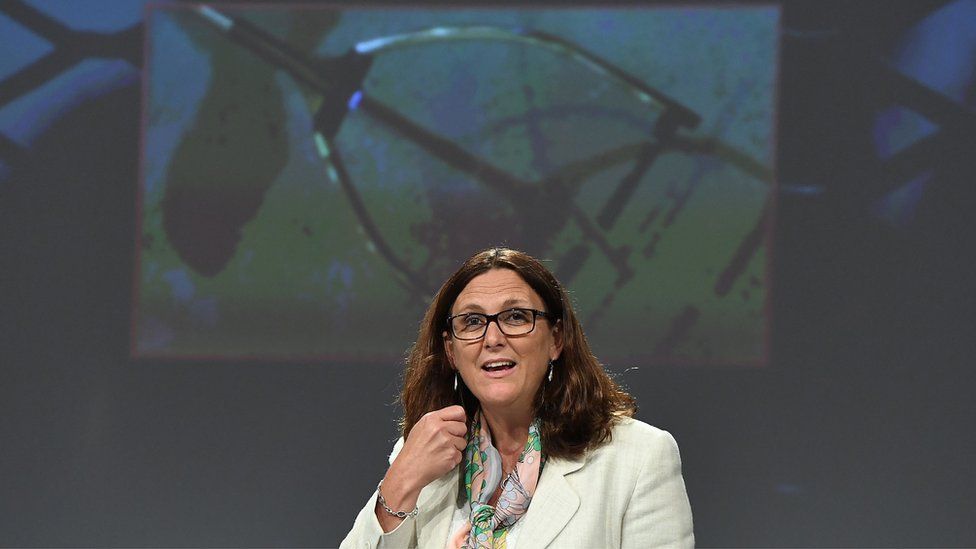EU seeks to limit trade of torture instruments
- Published

The European Union is spearheading an effort to limit the global trade of torture instruments and tools used to carry out executions.
Almost 60 countries have committed to join the Alliance for Torture-Free Trade, which formally launched at the United Nations on Monday.
Countries with some of the highest numbers of executions, including China and the US, are not participating.
But supporters of the initiative say the alliance is a start.
Goods such as shock belts, spiked batons and gas chambers are among the products targeted by the movement, which is also backed by Argentina and Mongolia.
Some of the items can be found for purchase online, which EU Trade Commissioner Cecilia Malmstrom called "unacceptable".
"I'm not naive. I know you can torture a person with a pencil if you want to, but this is a way to at least limit the access of these products," Ms Malmstrom told the BBC.
Members of the alliance plan to collaborate on laws curbing trade in these goods and to share information about trade routes. Ms Malmstrom said she also hopes it will isolate non-participants politically.
The UK, Canada, Brazil and Mexico are among the 57 countries that have committed to the alliance so far, her office said.
Go global
The initiative builds on earlier EU restrictions on the trade in torture equipment and the export of drugs that can be used to carry out lethal injections.
Those new rules have led to shortages of execution drugs in the US and contributed to a decline in the number of executions there.
The US put 20 people to death last year, the lowest number since 1991, according to Amnesty International.
"We have very tough legislation in the European Union ... but it's not enough," Ms Malmstrom told the BBC. "We need to go global."
Deborah Denno, a professor at Fordham Law School in New York, said formation of the alliance suggests that more countries are questioning the use of torture and the death penalty - even if the practices persist.
The drive should also have a practical effect, helping close off places outside of Europe where the US could look to import drugs for execution, she added.
"This looks like a really positive development," she said.
China carried out the highest number of executions in 2016, followed by Iran, Saudi Arabia, Iraq and Pakistan, Amnesty International said. The US ranked seventh after Egypt.
A spokesperson for the US State Department declined to comment. Chinese officials could not be reached for comment.
If it's credible, a trade boycott may have some effect, said Robert Blecker, a professor at New York Law School and author of the "Death of Punishment". But he said he thinks the alliance does a disservice by equating the death penalty and torture.
"They may think by doing that they emphasize appropriately how morally bad the death penalty is, but I think by equating them they underemphasize how distinctively morally bad torture is," he said.
"Torture is not just," he added. "The death penalty ... can be."
- Published14 May 2016
- Published4 October 2016